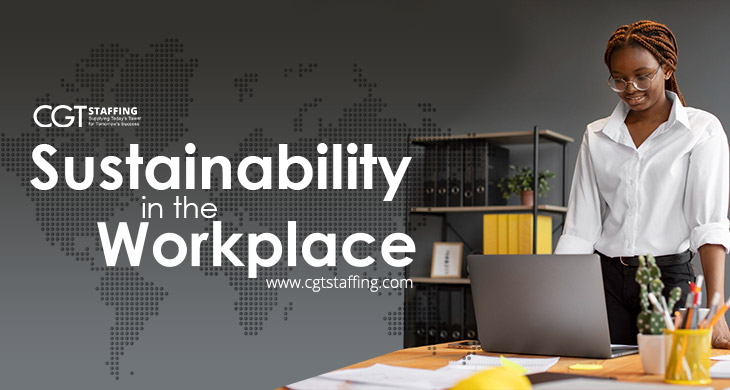With workplaces rapidly transforming and evolving, there are growing concerns about the sustainability of conventional and/or hybrid business models. Before a global health crisis on the scale of COVID-19, business sustainability typically revolved around responsible energy consumption, efficient use of office spaces, optimizing payroll expenses, and managing business overheads like rent, power bills, equipment, etc. On a less quantifiable scale, eliminating elements that contributed to a toxic work environment or threatened workforce retention would also be a big part of the conversation.
These topics are still important, but in the business world after the pandemic, the discussion has evolved along with workplaces themselves. Looking forward, business leaders and workforce managers now need to expand the discussion to cover entirely new factors that impact sustainability. Read on to discover more.
Table of Contents
Why Employers Need Workplace Sustainability
A sustainable workplace or business implies continuing profits and perpetuity. In other words, employers (and employees) stand to gain from a workplace and business culture that increases the sustainability of a business model and the profits that accrue from its continued functioning. In the post-pandemic world of today, both stand to gain considerably.
For businesses, shifts from conventional workforce models, platforms, and tools promise improved productivity and cost-effectiveness. For employees with a sustainable employer, there are smaller risks of pay cuts, furloughs, and/or layoffs as well as more income savings.
This transformative trend impacts nearly every function from mortgage recruiters to workplace security. The real concern, however, is if these transformations are long-term or simply imply short-term reactions. Here’s how the sustainable workplace of today (and potentially tomorrow) is shaping up:
Remote Employees Will Dominate Workforces
Remote workforces are on the rise, and they will likely continue on this trajectory on a global scale. In terms of business sustainability, this model offers several obvious advantages to employers. For example:
- Access to broader candidate pools and more diverse professionals.
- Developing the best talent acquisition strategies that aren’t inhibited by geographical boundaries.
- A sharp reduction in office space, equipment, payroll expenses, on-site benefits, and equipment maintenance costs.
- Ability to rapidly fill open positions with lower onboarding and payroll costs.
Workforce Cultures Will Grow More Inclusive
As businesses rapidly respond to changing employer and employee needs, the likelihood of workplaces becoming more inclusive will go up. This may be the turning point at which hiring bias finally gets pushed out of workplaces and hiring methods. With a greater focus on survival and competitive sustainability, businesses must place greater focus on competence, experience, and employee value.
Race, ethnicity, gender, sexual preferences, and other issues that don’t directly relate to performance should take a back seat to output. This may prove to hold true regardless of whether businesses prefer centralized recruitment, direct hires, or other staffing solutions. The alternative is losing great candidates to aggressive hiring practices from other employers and thus impairing long-term business success.
Sustainable Practices Will Help Acquire and Retain Customers
As firms adopt sustainable business practices, the benefits often multiply considerably. A key example is the favorable brand impression these practices offer to the firm’s end consumers or purchasers. With social justice, ecological responsibility, and gender pay equity now household discussions, consumers are far more likely to purchase goods and services from brands that demonstrate values that are consistent with these issues.
A brand taking a moral stand against harassment and removing high-profile personnel following an HR investigation will gain more social capital among demographics that share these values. As a result, businesses may see a boom in new customer acquisition (since they become easier to convince) and retention of their existing customer base.
Non-Essential Business Travel Will Go Down
Travel and lodging are historically significant expenses in conventional business models, especially for high-ranking executives. With the increased use of remote tech like virtual conferencing, digital meeting rooms, podcasts, job fairs, and professional discussions, the need for non-essential physical travel has gone down significantly.
This means businesses will have to budget for far lower travel costs than they used to prior to the pandemic. By extension, this will massively reduce the carbon footprint associated with business travel.
